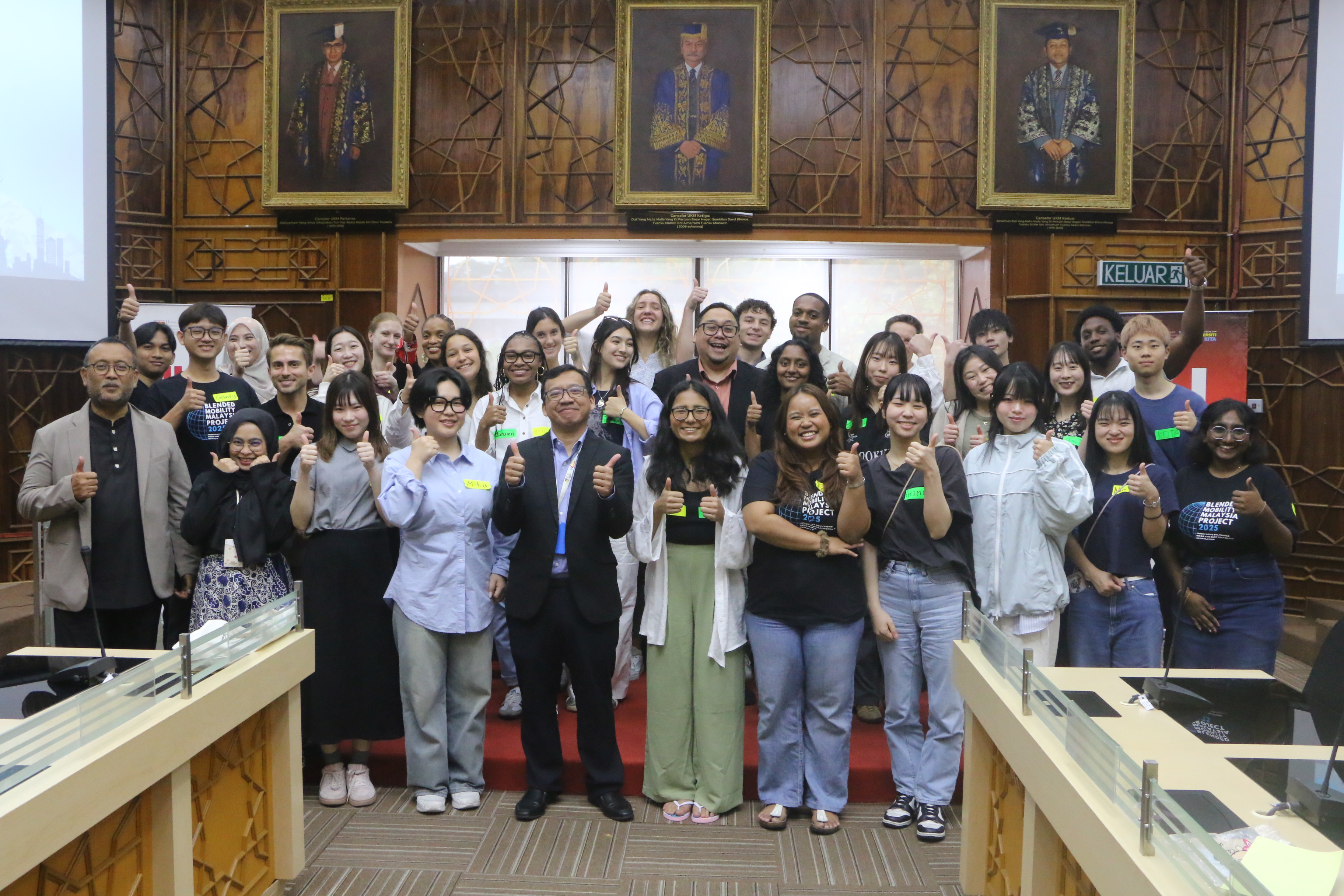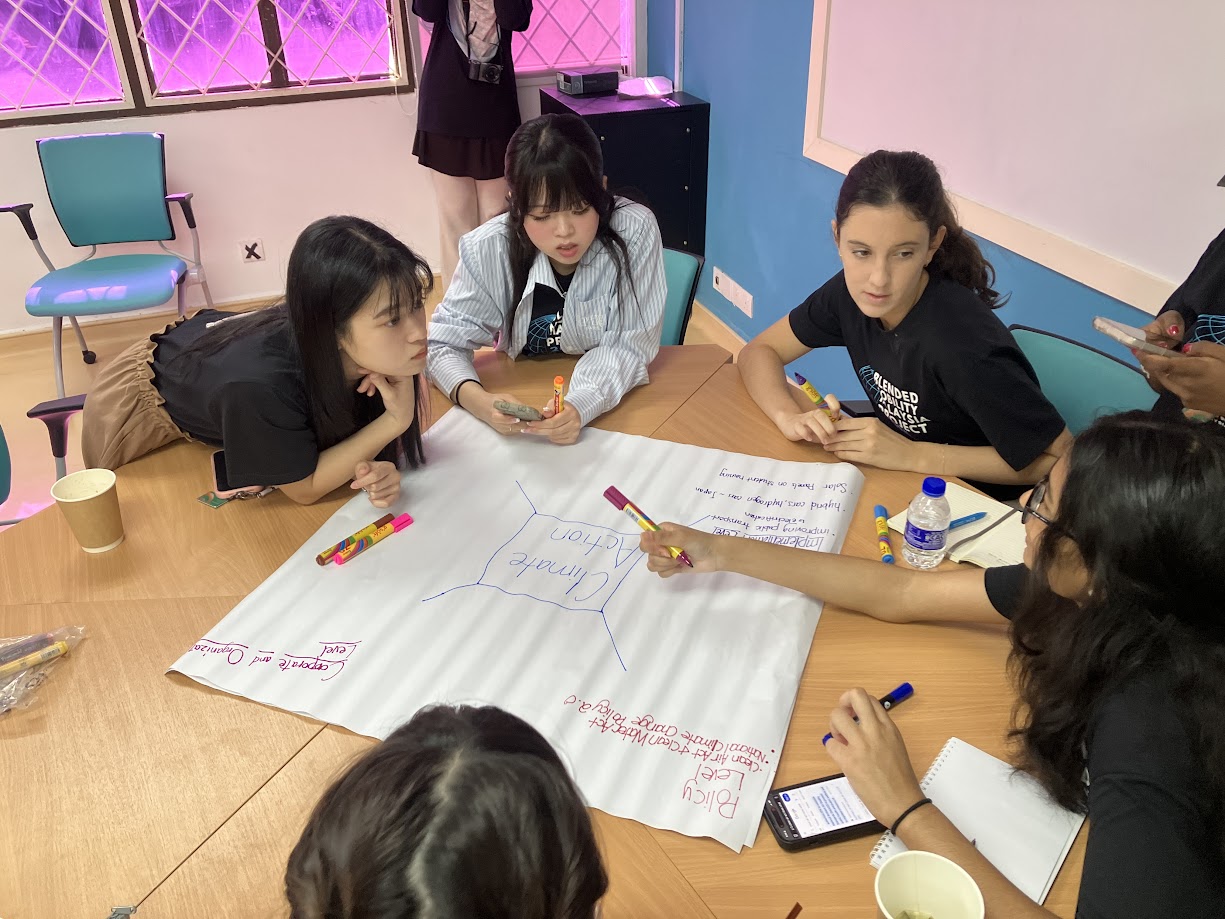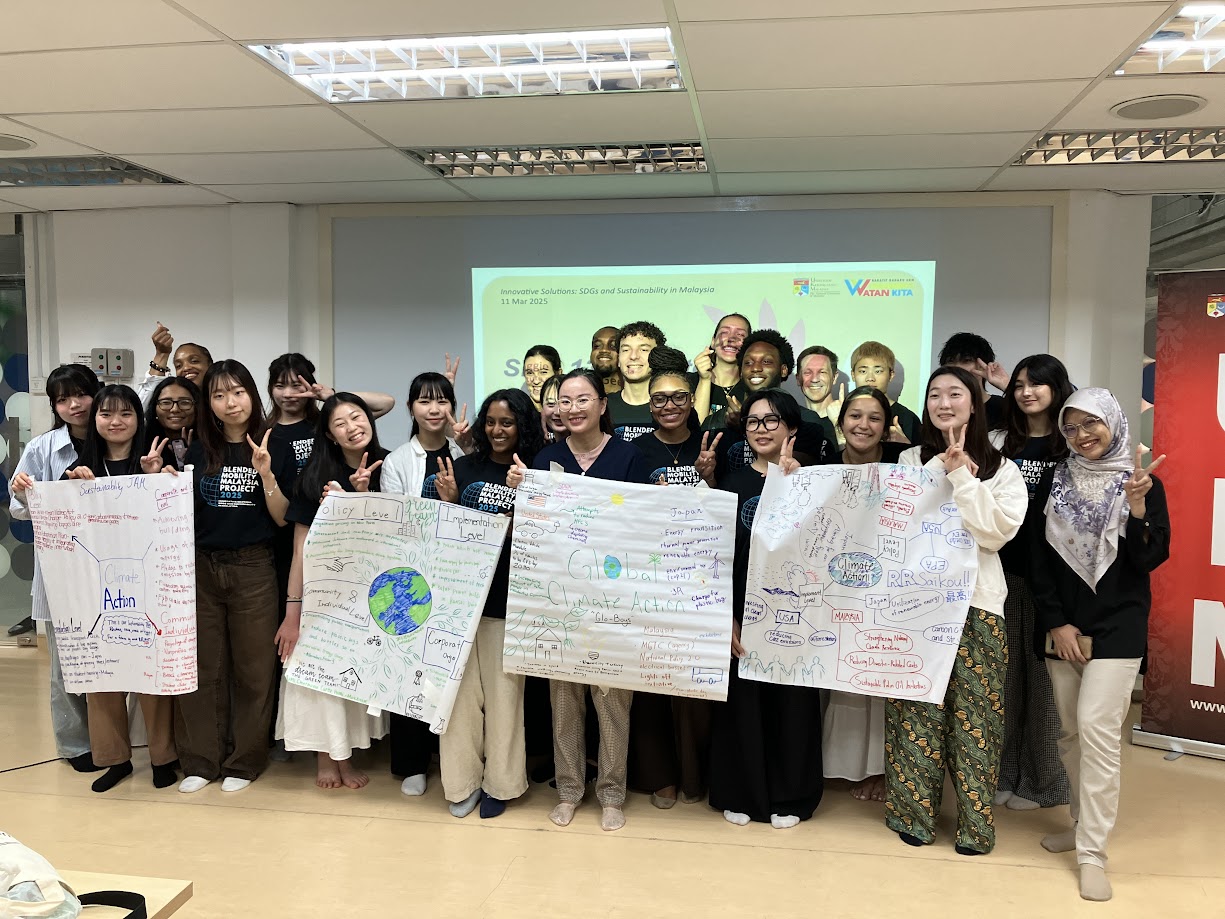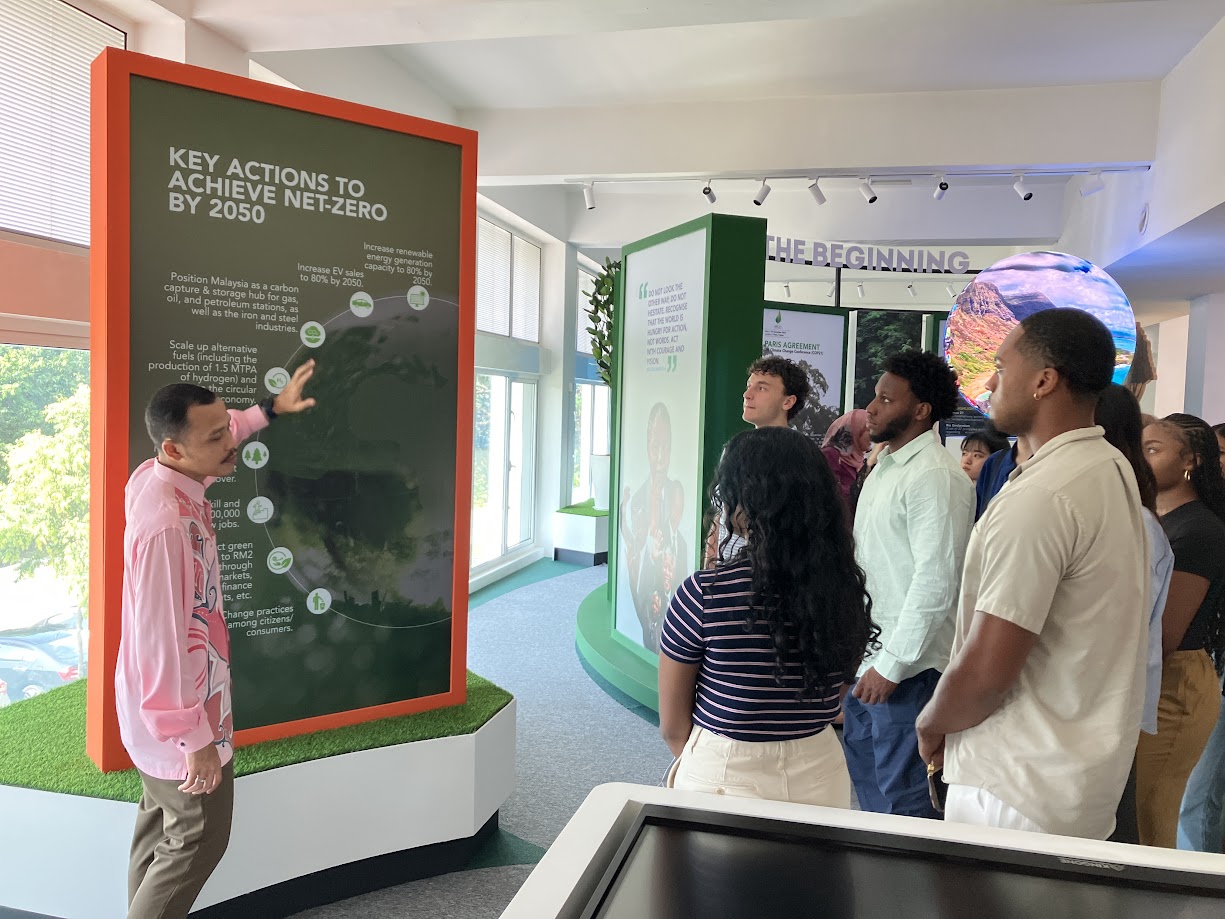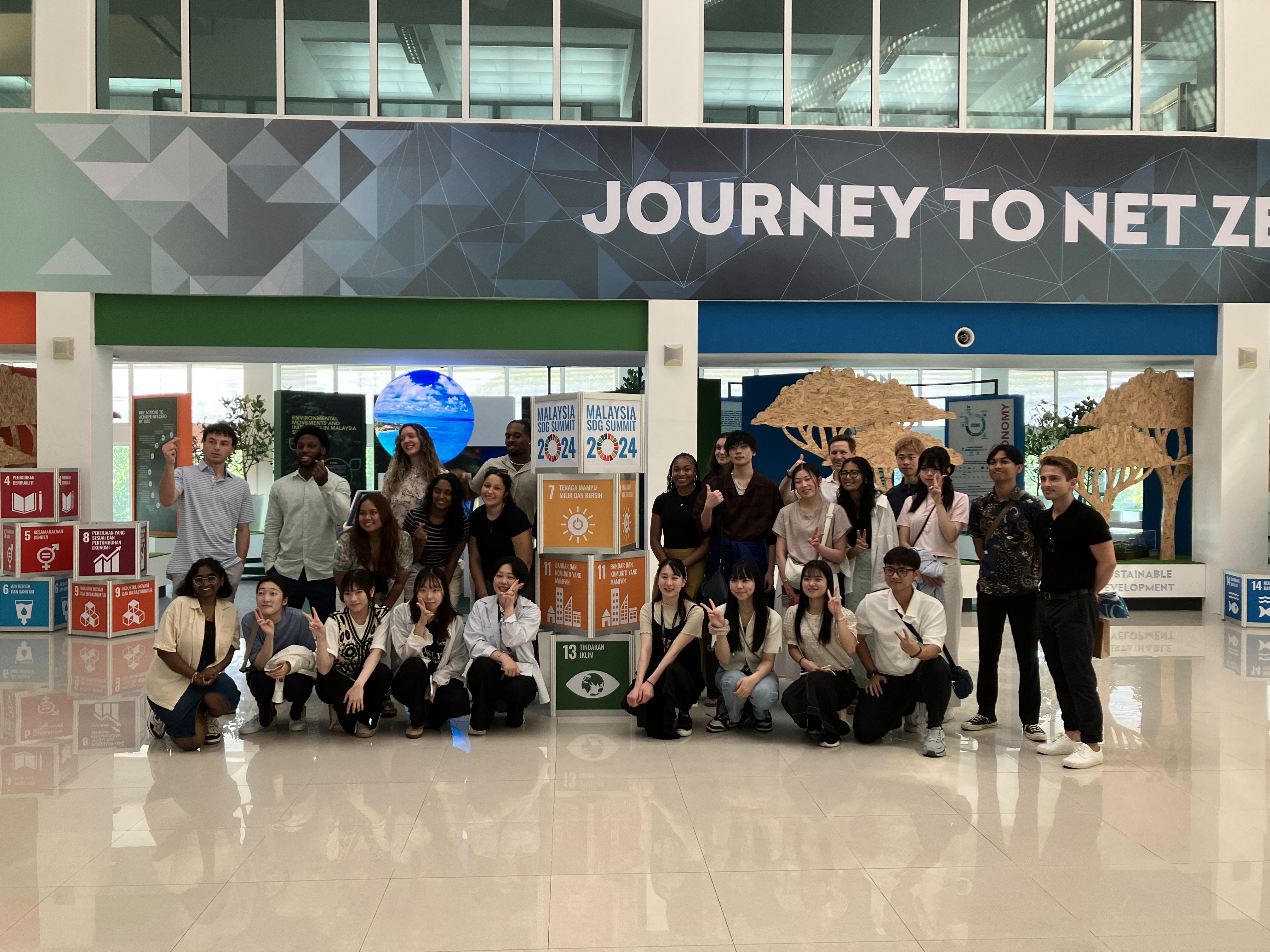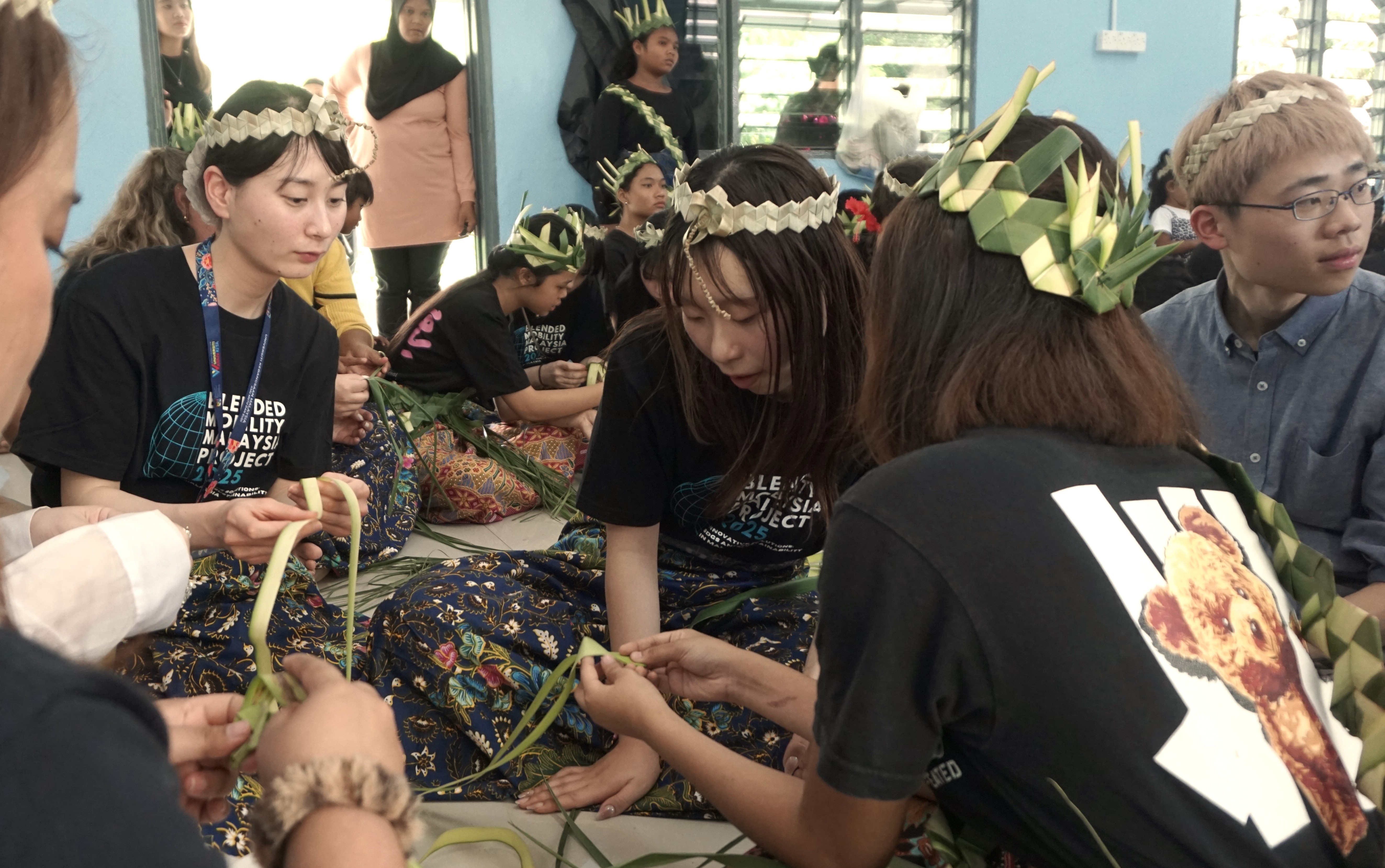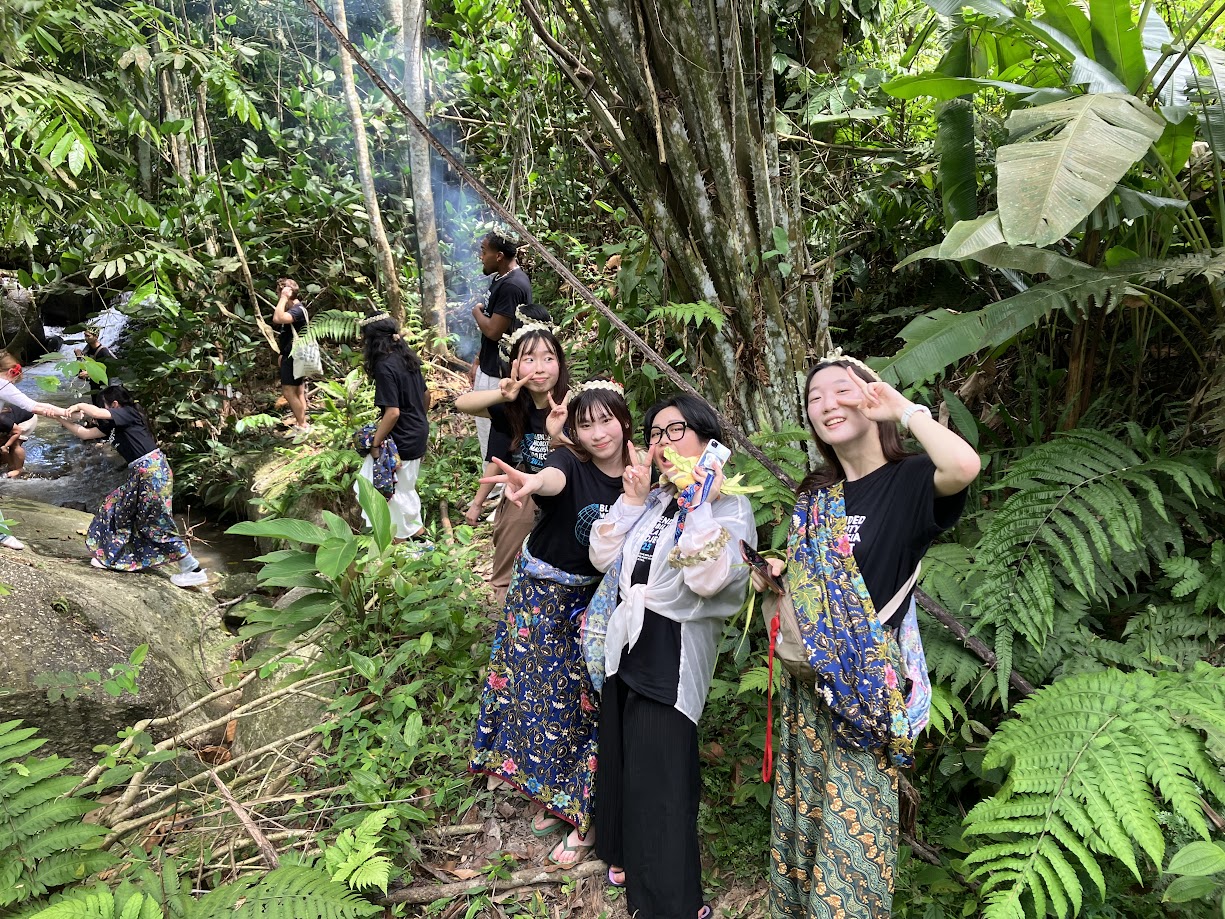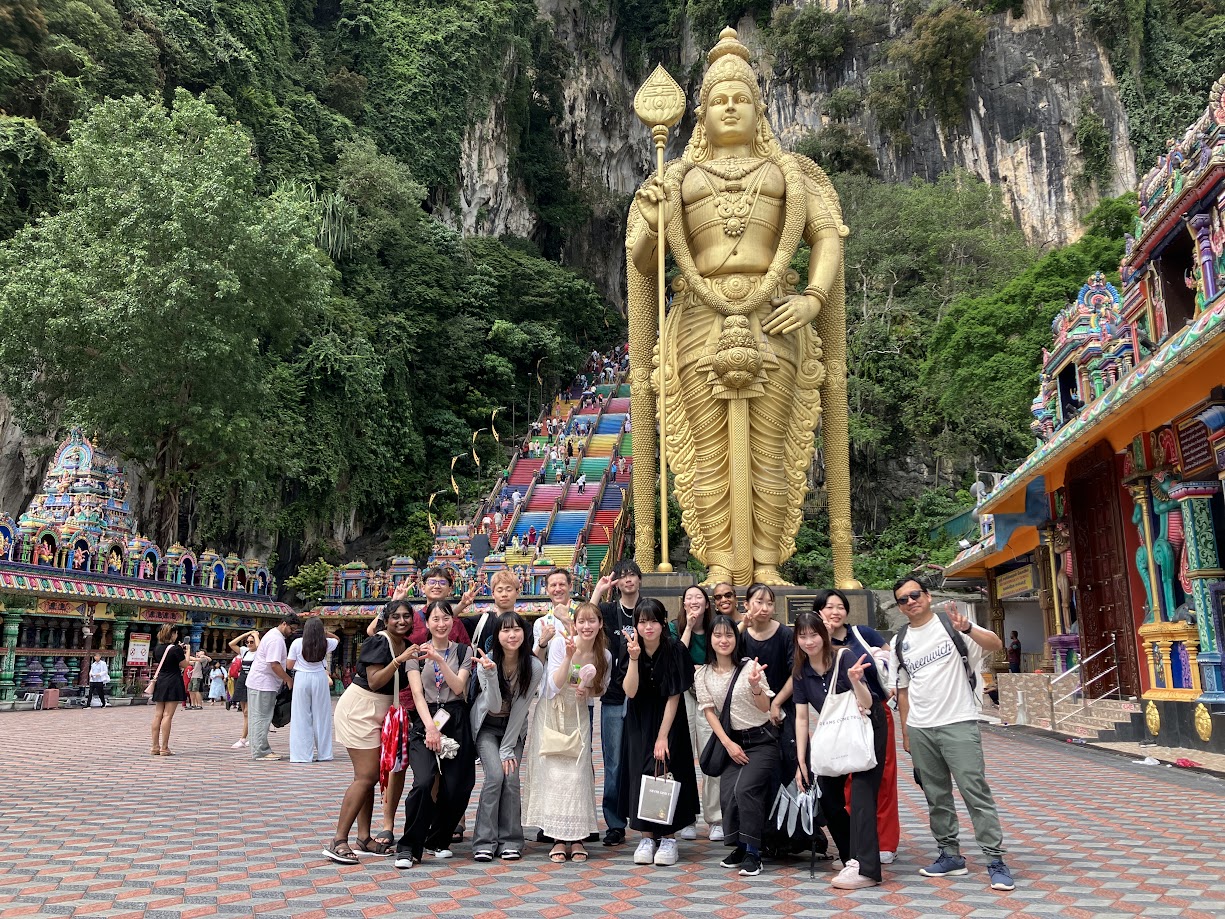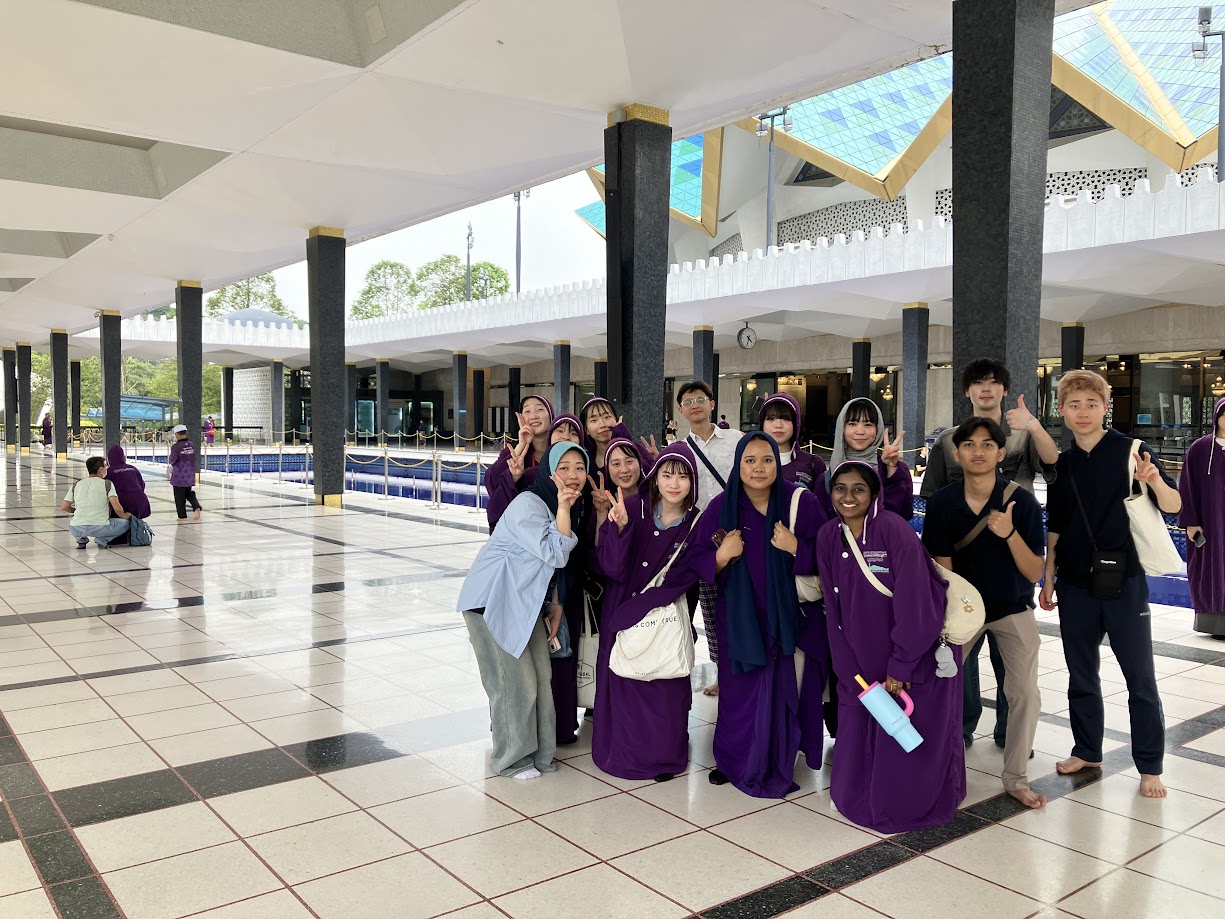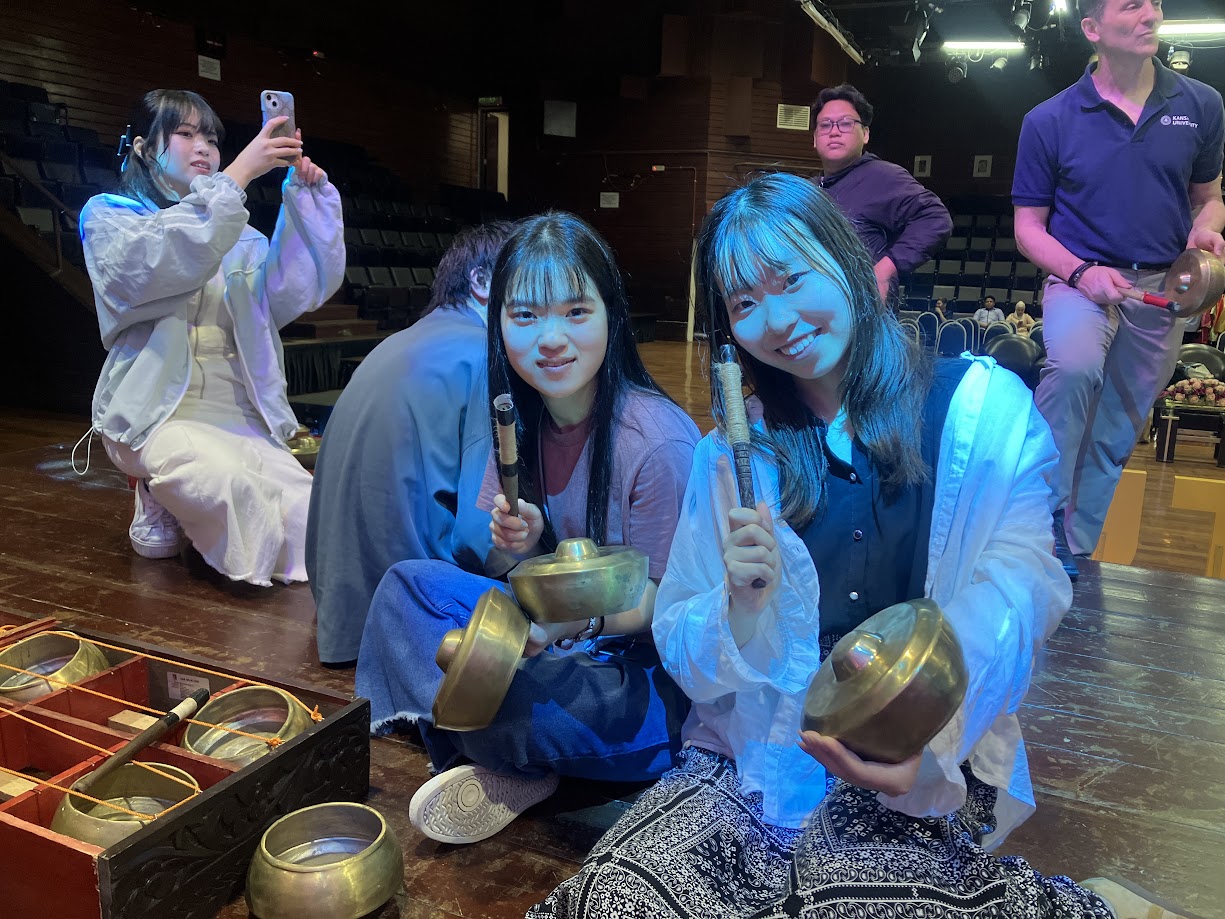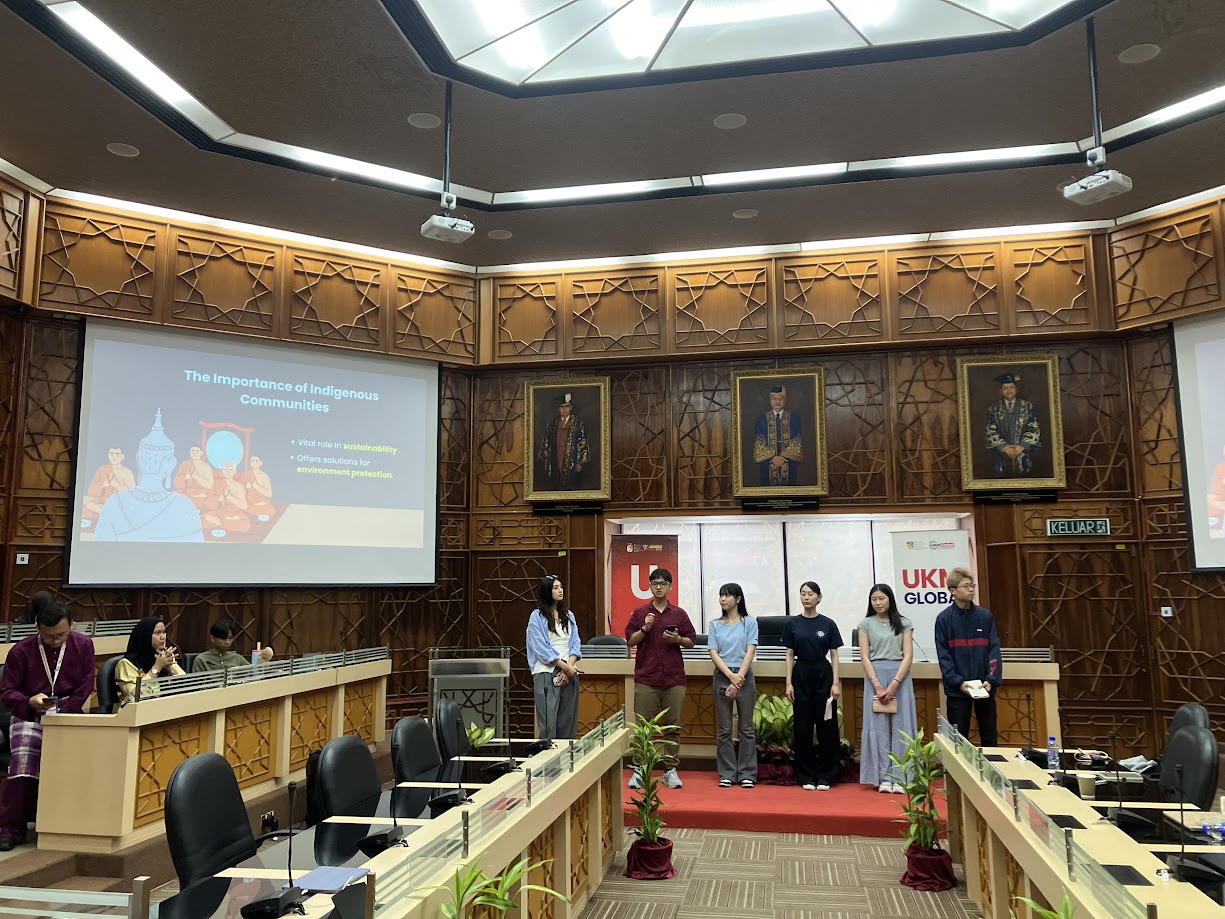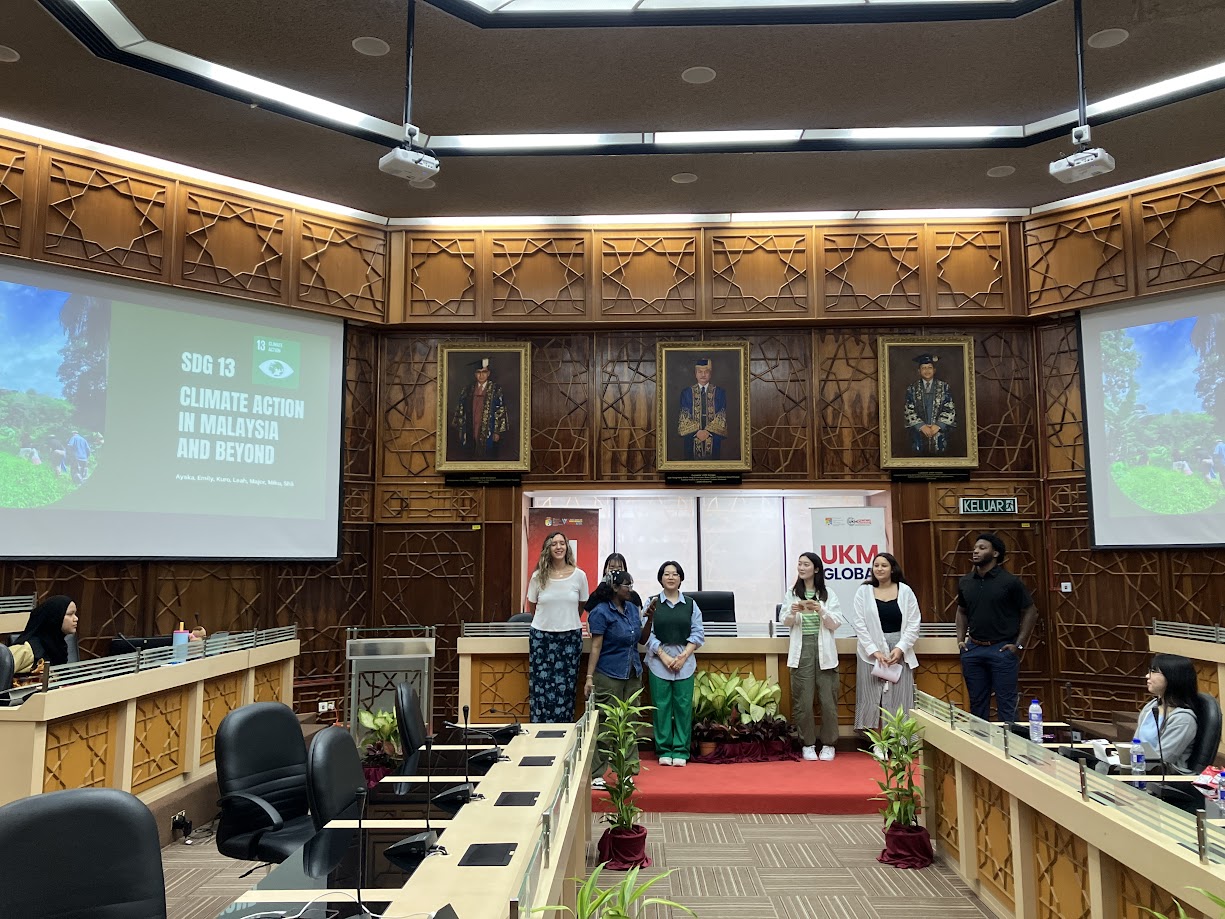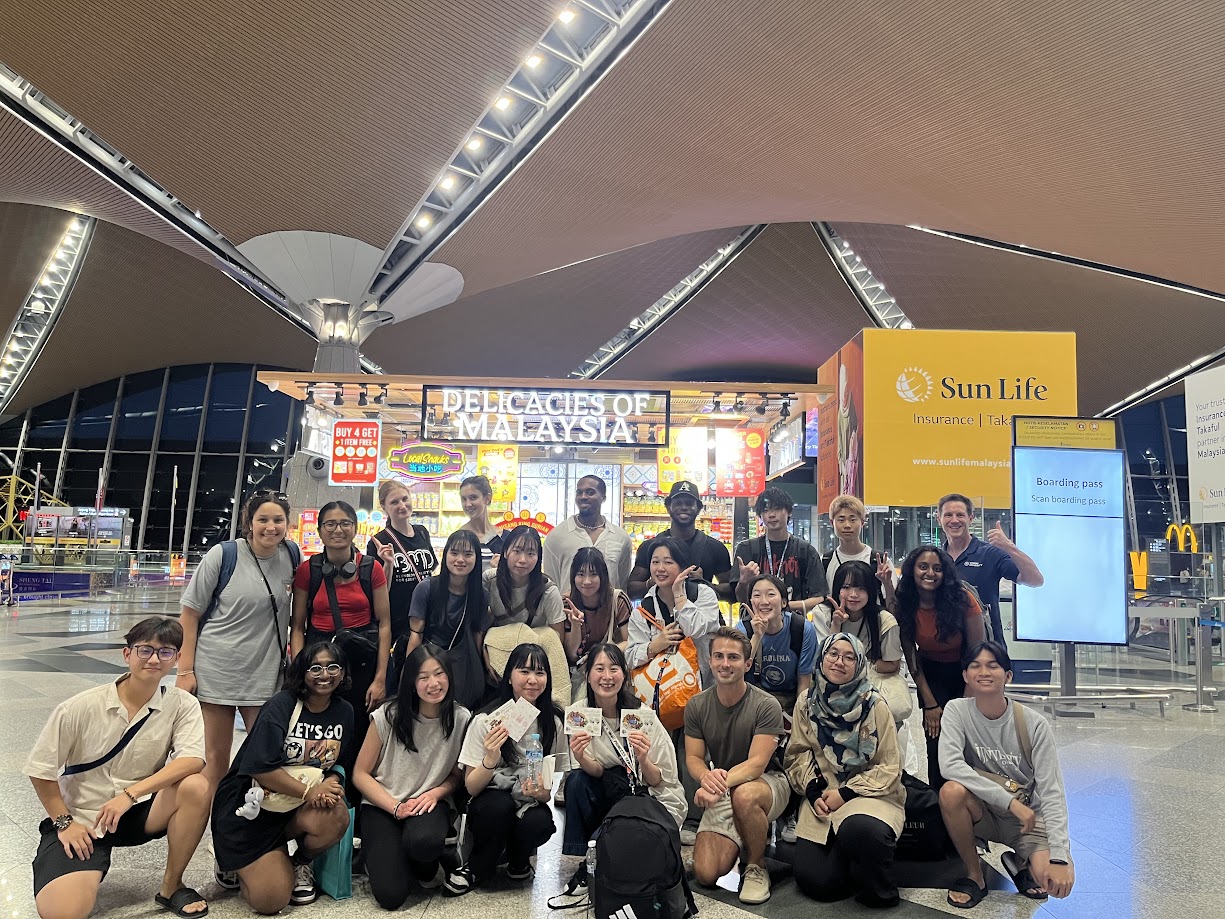2025.03.20アドバンストプログラム
Kansai University Partners with UKM and UNC for a Blended Mobility Program on SDGs and Sustainability in Malaysia
In February and March 2025, Kansai University (KU), Universiti Kebangsaan Malaysia (UKM), and the University of North Carolina at Chapel Hill (UNC) collaborated on the Blended Mobility program, "Innovative Solutions: SDGs and Sustainability in Malaysia." The program brought together 10 KU students , 11 UNC students, and a team of enthusiastic UKM student volunteers for a transformative experience combining cultural immersion, academic learning, and leadership development. Over 10 days in Malaysia, participants engaged in interactive sessions on multiculturalism, leadership, and sustainability, working in teams on projects that emphasized cross-cultural collaboration and SDG-focused problem-solving.
Online Phase: COIL
The program started with COIL sessions. Over four weeks, students from KU, UKM and UNC engaged in online sessions designed to foster intercultural understanding, develop teamwork skills, and prepare for their time in Malaysia. The workshops led by Assoc. Prof. Andrew Sowter (KU), Assoc. Prof. Dr. Abdul Latiff Ahmad (UKM) and Assistant Prof. Dr. Kimberley Williams (UNC) introduced students to Malaysian culture, business practices, and academic expectations while helping them build relationships with their peers. A key outcome was a 10-minute group presentation, where students shared their research on Malaysia, and their fieldwork activity plan that incorporated SDG-related themes and cultural exploration. This collaborative effort not only strengthened teamwork and research skills but also ensured that students arrived in Malaysia well-prepared for the immersive experience that followed.
In early March the on site part of the Blended Mobility program began. Upon arriving in Malaysia, the KU students led by Assoc. Prof. Andrew Sowter and Program Coordinator Mariya Byvakina and the UNC students led by Dr. Kimberley Williams and Director Benjamin Hershey, engaged in a wide array of educational, research and cultural activities.
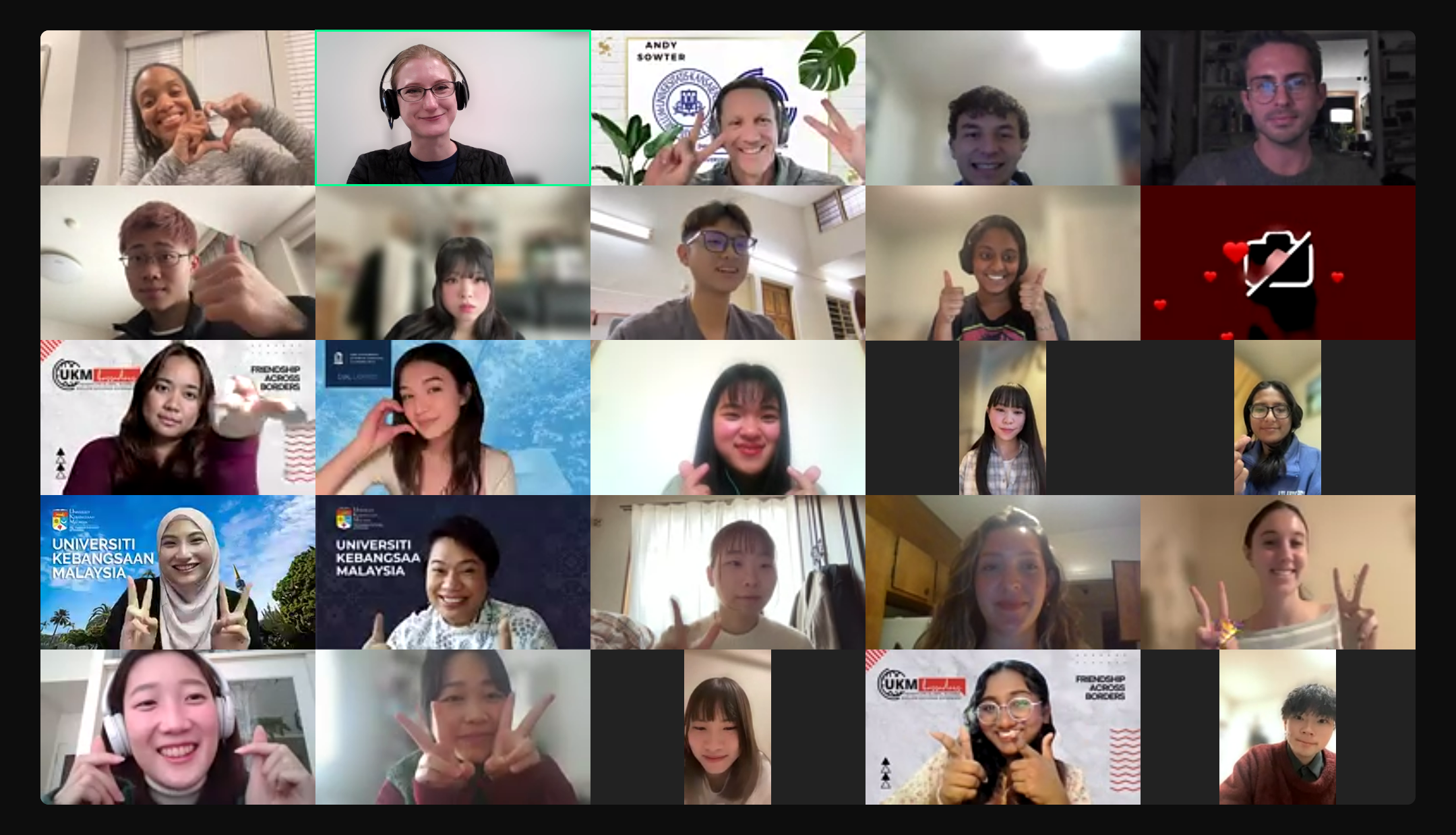
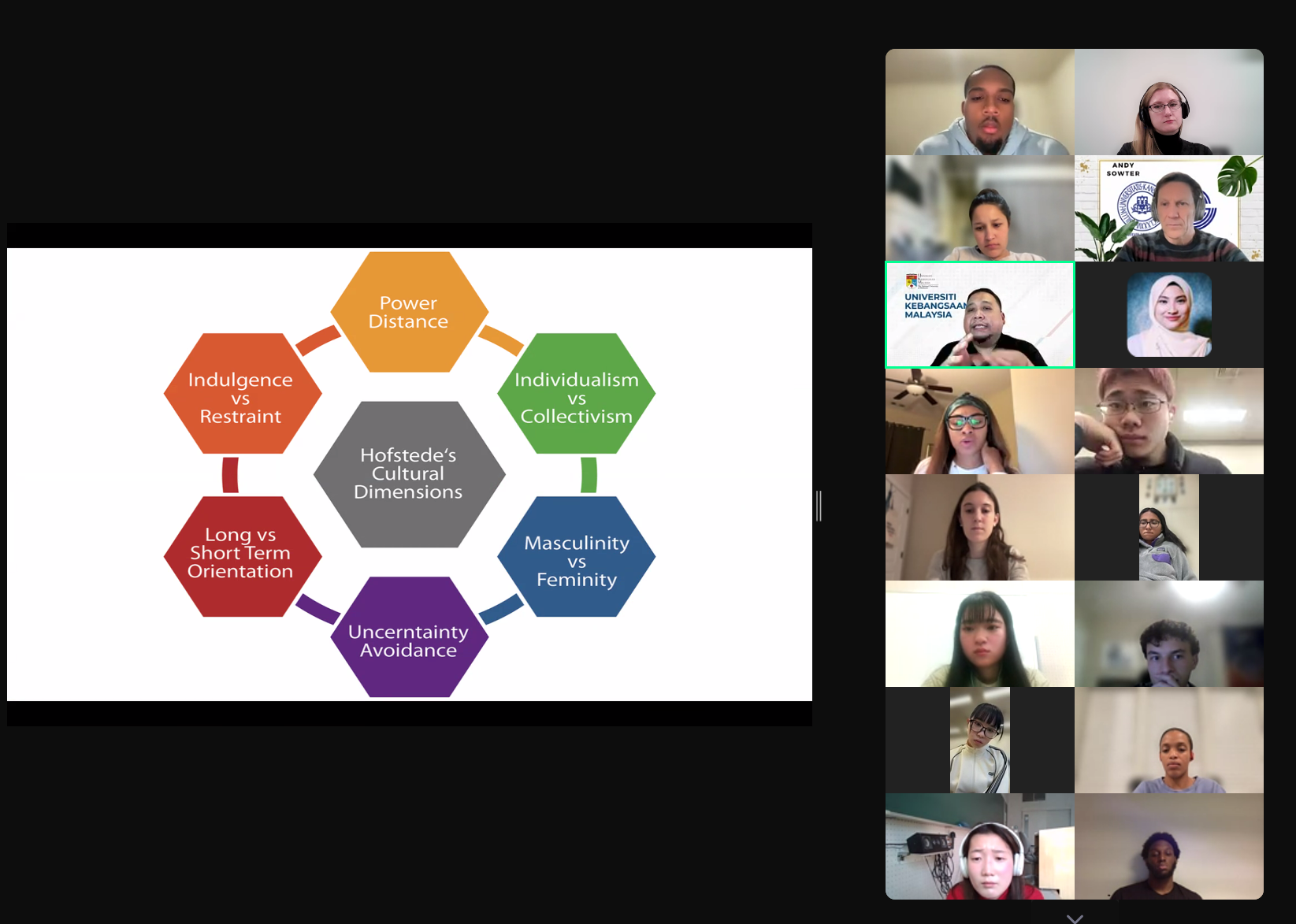
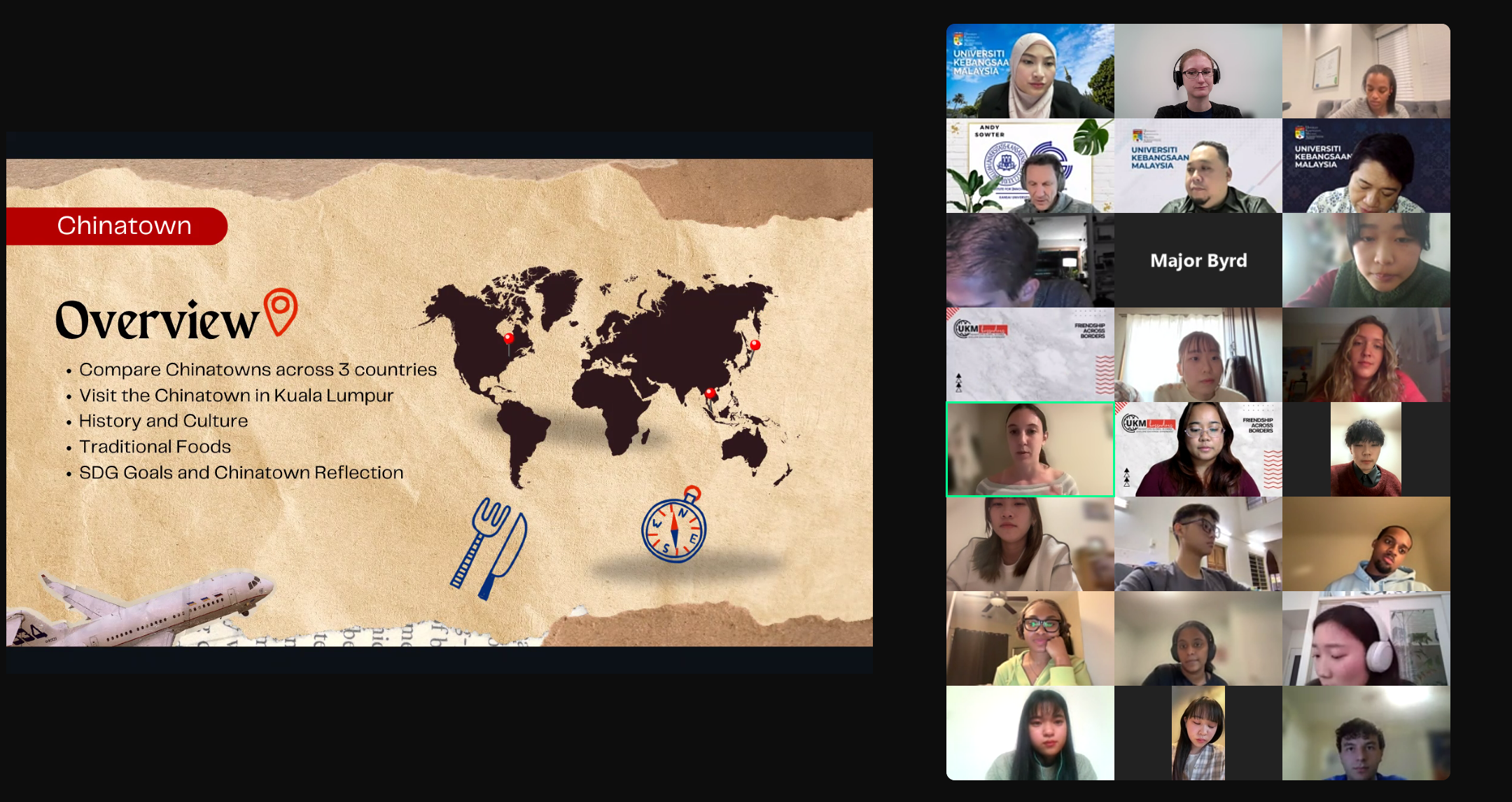
Workshops
The on-site workshops were an essential part of the Blended Mobility program, providing students with academic insights and practical skills related to sustainability, leadership, and cross-cultural communication and deepening students' understanding of Malaysia’s multicultural landscape, sustainability initiatives, and global challenges. The program began with an introduction to Multiculturalism in Malaysia and Basic Malay, helping students navigate cultural differences and communicate effectively during their stay.
Workshops on sustainability and the SDGs covered key topics such as Climate Action (SDG 13) and Building Sustainable Communities (SDG 11), with a focus on Malaysia’s efforts to address local environmental and social challenges. Students engaged in discussions on observed local issues and worked collaboratively to propose potential solutions. Practical skill-building sessions on storytelling, writing a persuasive pitch and presentation skills helped students refine their communication and presentation abilities, ensuring they could effectively convey their research findings. These workshops not only enriched students’ academic knowledge but also prepared them to take an active role in sustainability-focused initiatives beyond the program.
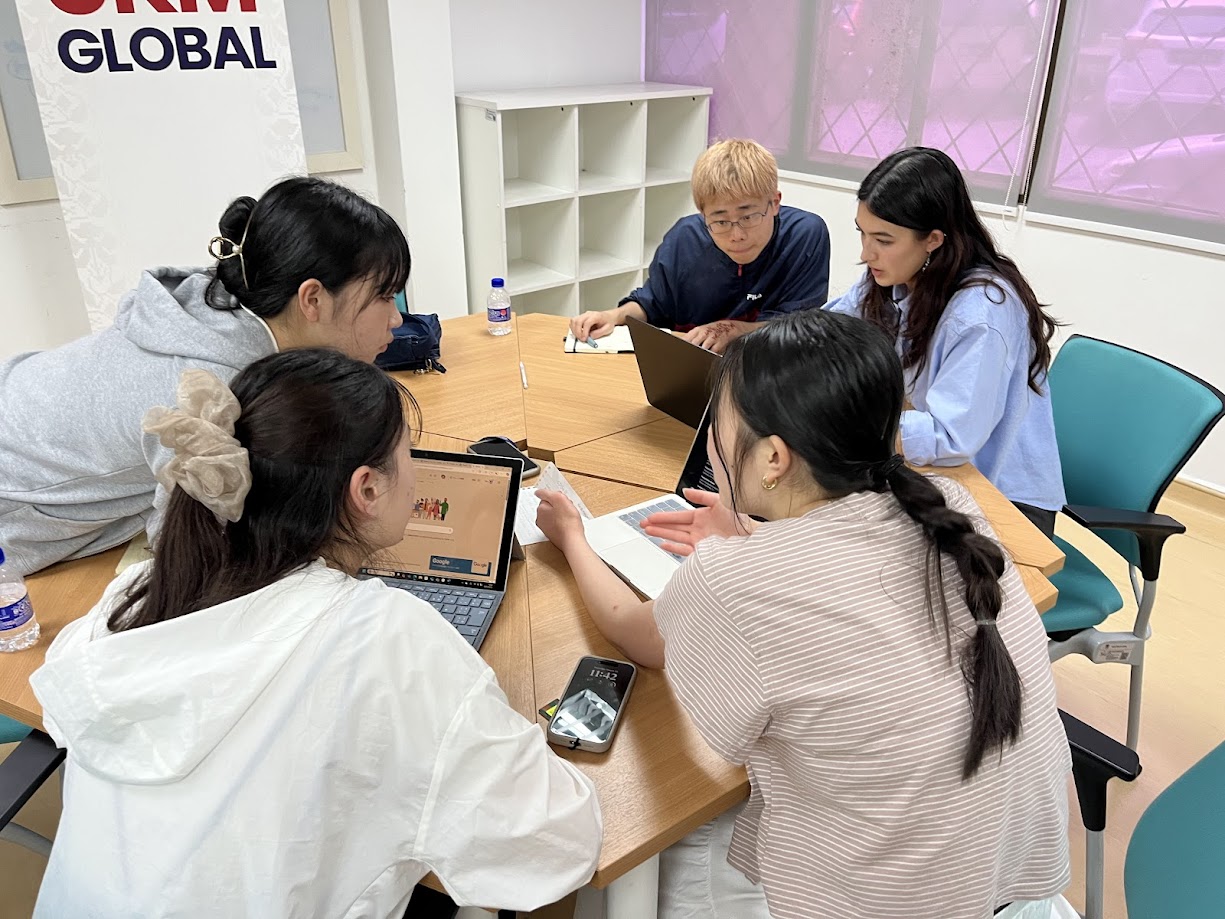
Industry Visits
As part of the program, students gained real-world insights through industry visits and expert talks on sustainability and technology. At Nasyrul Quran, one of Southeast Asia’s leading Quranic printing centers, they explored the fusion of modern printing techniques and traditional Islamic art in preserving religious texts. A visit to the Malaysian Green Technology and Climate Change Corporation (MGTC) introduced Malaysia’s sustainability policies, renewable energy efforts, and green innovations aligned with the SDGs. Additionally, a guest talk by PETRONAS on renewable energy initiatives highlighted corporate efforts to empower communities and support Malaysia’s clean energy transition. These experiences complemented students' academic learning with practical exposure to sustainability in action.

Cultural Immersion
Cultural immersion was a key component of this program, offering students a chance to experience Malaysia’s diverse heritage through interactive activities. The program began with a scavenger hunt at UKM, where students worked in teams to explore the campus, complete fun challenges, and bond with their peers. Guided by UKM students, participants discovered key locations such as the library and faculty buildings, while also encountering the local wildlife - including the campus’s famous monkeys and cats. This activity helped students familiarize themselves with their new environment while fostering teamwork and cross-cultural connections.
Beyond the campus, students immersed themselves in Malaysia’s multicultural identity through visits to Batu Caves, Kampong Baru, Chinatown, and the National Mosque. A highlight of the experience was a trip to an indigenous community, where students engaged in traditional music and dance, a weaving workshop, and discussions on the community’s way of life and challenges. Additionally, the group participated in an Iftar (fast-breaking) at the UKM Mosque, gaining firsthand experience of Malaysia’s Islamic traditions. At the UKM Cultural Center, they explored Malaysia’s artistic heritage through music, dance, and traditional costumes. These experiences provided a deeper appreciation of Malaysia’s rich cultural landscape, reinforcing the program’s emphasis on intercultural learning and global awareness.
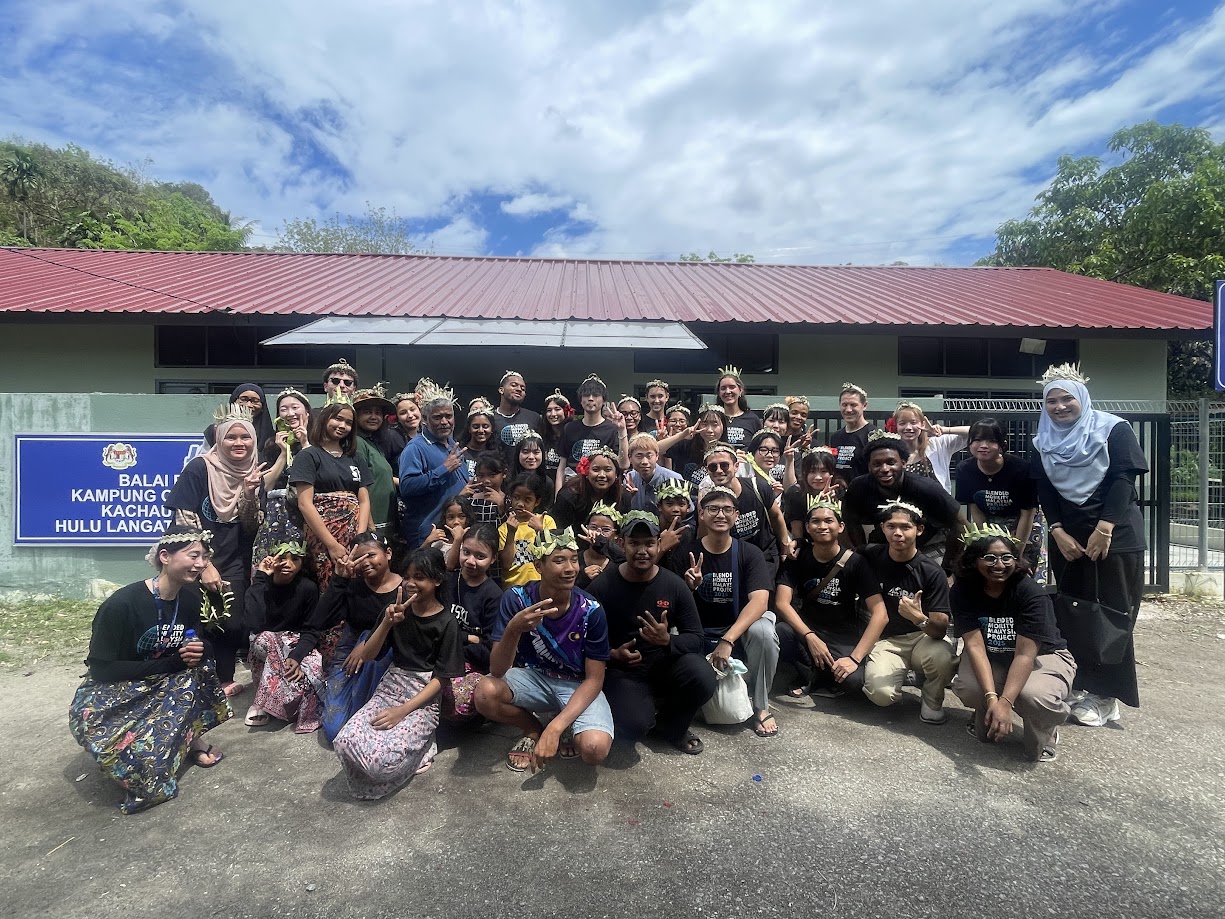
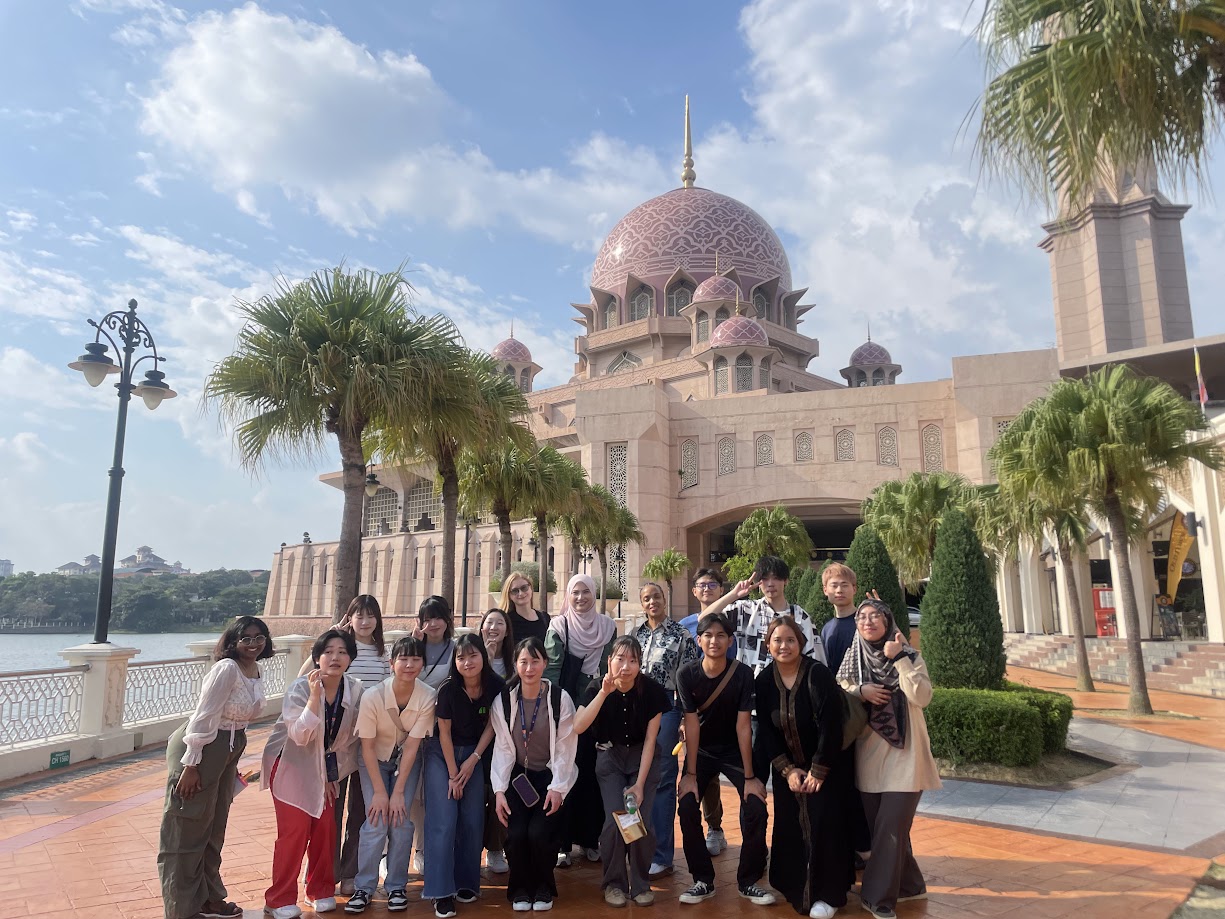
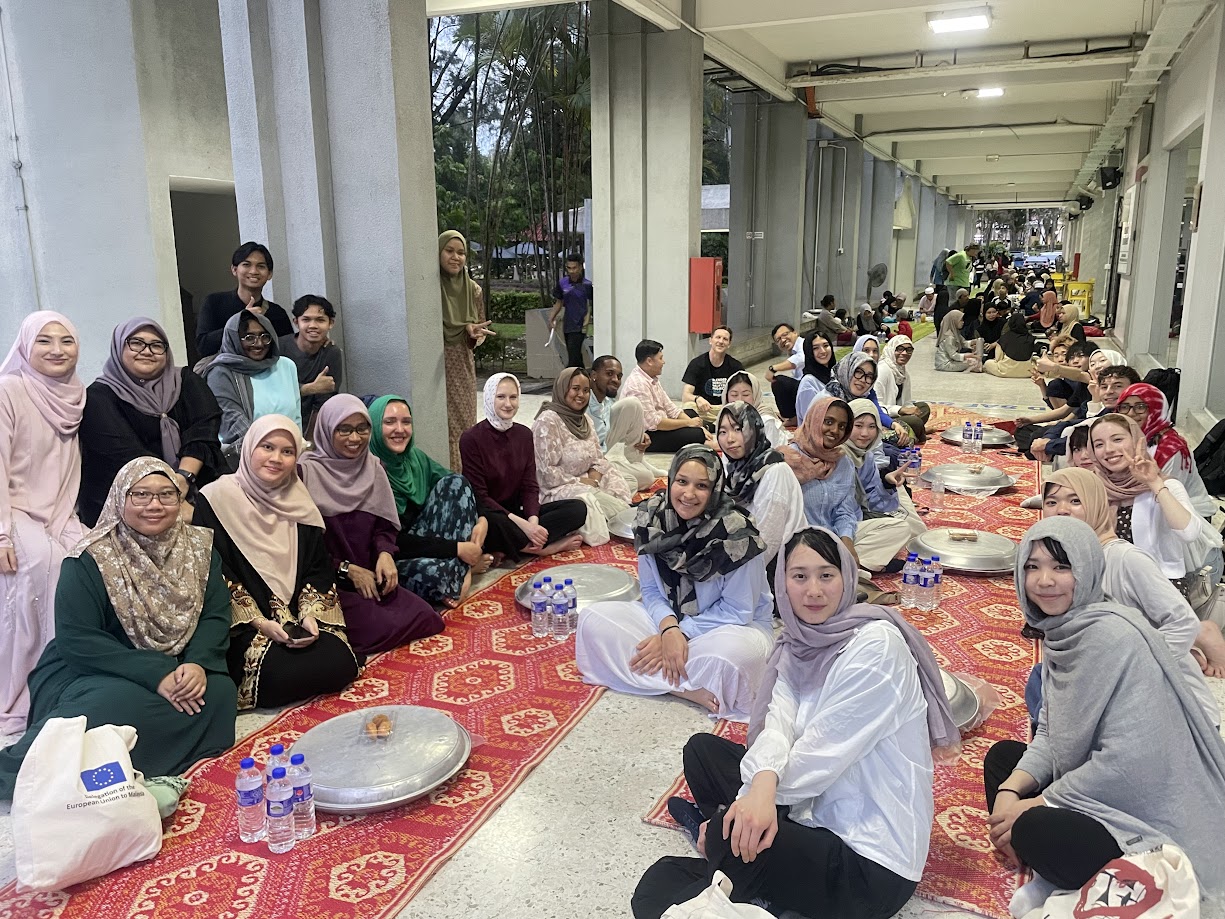
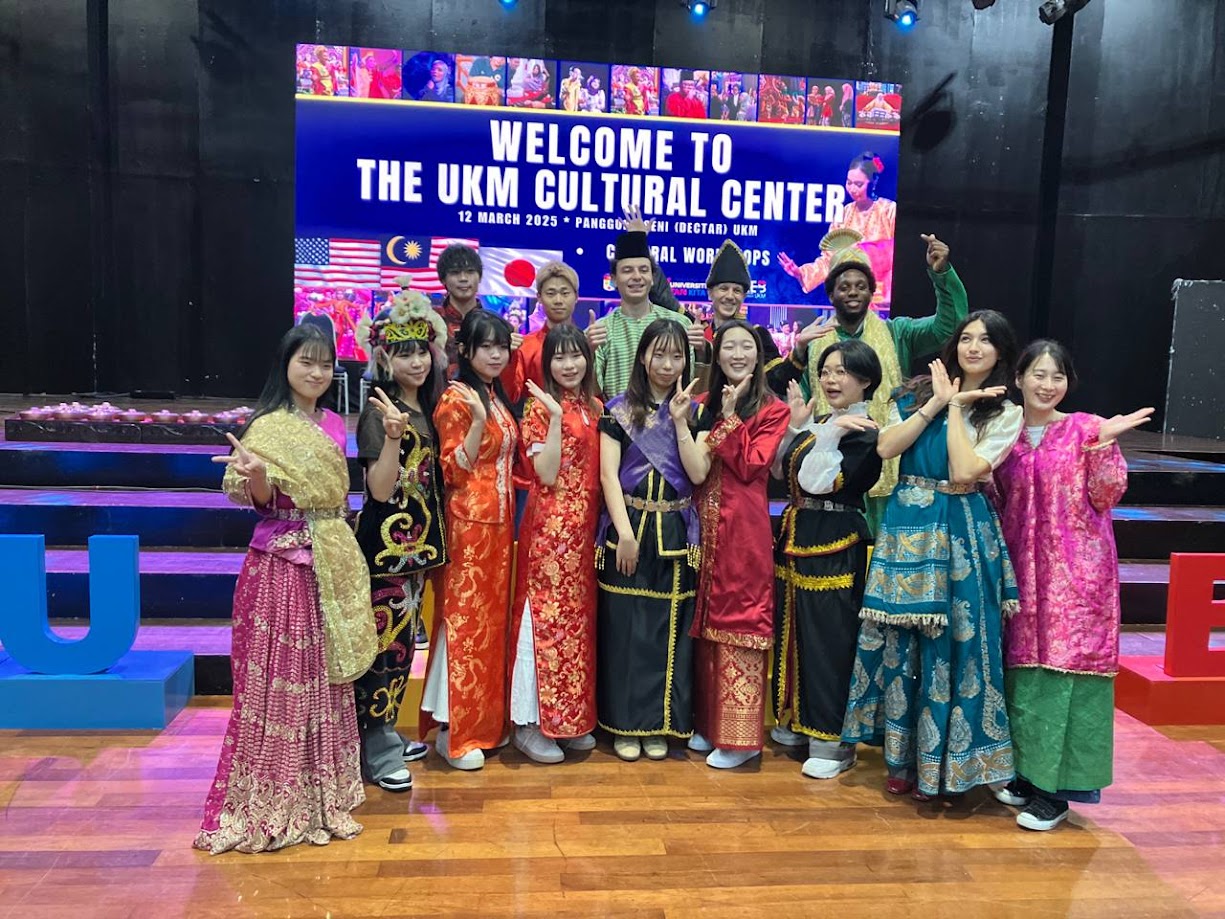
Final Project
For their final project, "Sustainable Solutions Across Borders: Insights from Malaysia and Beyond," students worked in four teams to showcase what they had learned throughout the program. Each group focused on a theme related to sustainability and multiculturalism, such as Climate Action (SDG 13), Sustainable Communities (SDG 11), Indigenous Community Sustainability Practices, or Renewable Energy & Community Empowerment (SDG 7). Their 10 to 15-minute multimedia presentations combined insights from field visits, workshops, and industry sessions, drawing connections between Malaysia, Japan, and the U.S. Teams identified key sustainability challenges, compared them with global perspectives, and proposed potential solutions. The presentations concluded with a call to action, encouraging audiences to reflect on sustainable practices and take meaningful steps toward change.
This Blended Mobility program provided students with a transformative experience, combining academic learning, cultural exchange, and real-world problem-solving. Through workshops, industry visits, and hands-on fieldwork, they gained deeper insights into global sustainability and cross-cultural collaboration. Beyond academics, the program fostered meaningful connections, leadership skills, and a broader perspective on international cooperation. The final presentations showcased their growth, creativity, and commitment to finding solutions for global challenges. As they move forward, students take with them valuable knowledge, new friendships, and a deeper appreciation for collaboration in addressing real-world issues.
